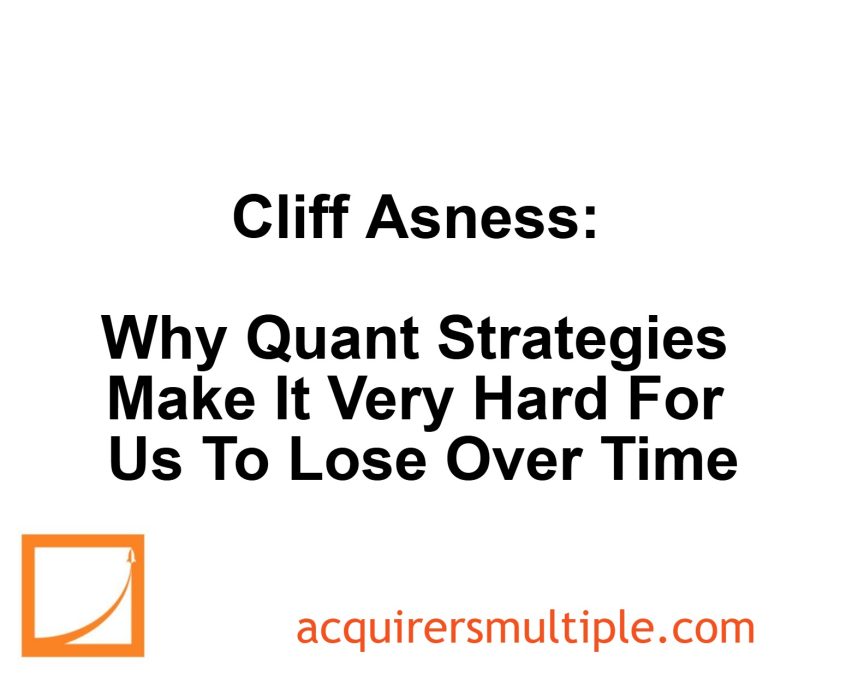In his interview in the book –
Here’s an excerpt from the interview:
Asness: I think good judgmental managers are often looking for the same things we are—cheap stocks with a catalyst as to why they won’t remain cheap, and vice versa for shorts. In fact, for a long time I used to think we did something very different, until I realized that “catalyst” and “momentum” share a lot in common and so do quants and more discretionary managers.
In fact, be it for rational or irrational reasons, I think this is the type of management, quant or judgmental, that adds value over time.
The big difference between quants and non-quants comes down to diversification, which quants rely on, and concentration, which judgmental managers rely on. But what we tend to like or dislike in general is actually fairly similar.
A discretionary manager gets to intimately know the companies they invest in. We don’t, but our advantage is that we can apply our trading philosophy to thousands of stocks at the same time. If the philosophy works, it’s very hard for us to lose over time given that we spread the risk over so many stocks. Of course, as implied earlier, it’s very easy to lose for a while even if you’re right!
Even if a discretionary manager knows a company very well, the CEO can still turn out to be a philandering embezzler, so you have that stock-specific randomness if you only hold a few stocks. And no matter how well you know something, there is still just a chance you’re wrong.
Quantitative investors can process a lot of information. We look at many more stocks and many more factors than is easily done by discretionary stock pickers. Further, we apply the same investment principles across stocks, backtest our strategies, and follow our models with some discipline.
You can find a copy of the book here:
For all the latest news and podcasts, join our free newsletter here.
Don’t forget to check out our FREE Large Cap 1000 – Stock Screener, here at The Acquirer’s Multiple:



